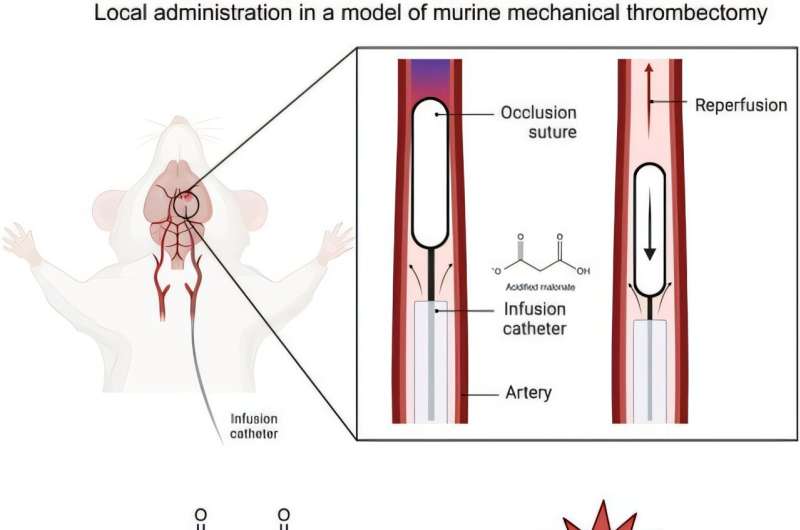The study, “Local arterial administration of acidified malonate as an adjunct therapy to mechanical thrombectomy in ischemic stroke” was published in Cardiovascular Research.
As many as one in four people will have a stroke during their lifetime. This is when a blood clot prevents oxygen from reaching a part of the brain. The first few hours following a stroke are crucial—the blood clot needs to be removed quickly so that the oxygen supply to the brain can be restored; otherwise, the brain tissue begins to die.
Currently, the outcome for stroke patients receiving even the best available treatment, known as mechanical thrombectomy, is still poor, with fewer than one in 10 patients leaving hospital with no neurological impairment.

